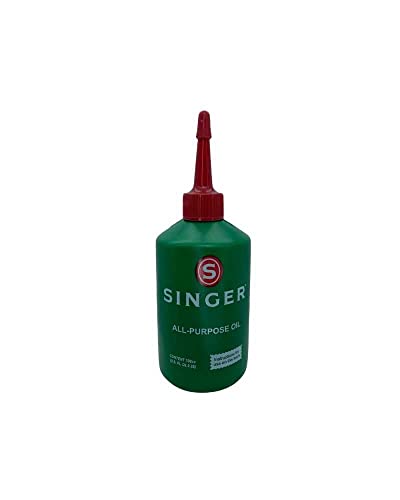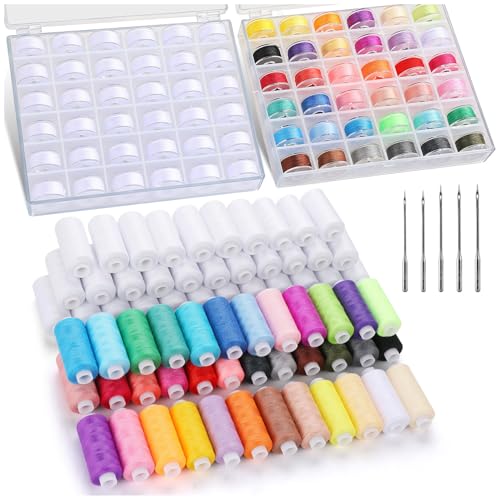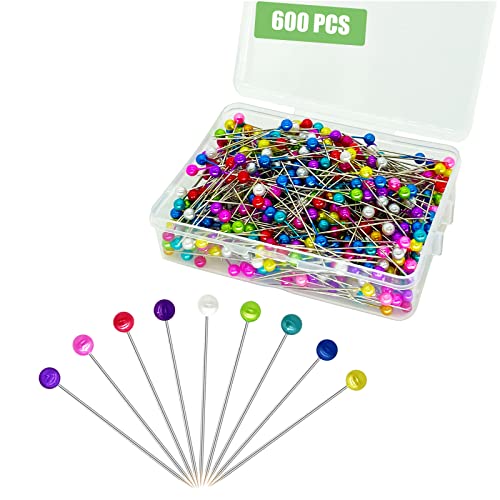Ever found yourself in the middle of a sewing project only to realize you’re out of sewing machine oil? Don’t let that derail your creativity. There are several household items you can use as a substitute to keep your machine running smoothly.
From common kitchen staples to items you might already have in your garage, these alternatives can save the day. Let’s explore some easy and effective substitutes that will keep your sewing machine in tip-top shape without a trip to the store.
Understanding Sewing Machine Oil
Maintaining your sewing machine’s performance requires proper lubrication. When you run out of sewing machine oil, knowing its significance helps identify suitable substitutes.
Importance of Proper Lubrication
Lubrication ensures smooth operation. It minimizes friction, prevents wear, and extends the machine’s lifespan. Neglecting lubrication leads to malfunction and inefficiency. Proper lubrication reduces noise and keeps stitches consistent. Always check the manual for recommended lubrication points to maintain performance.
Characteristics of Sewing Machine Oil
Sewing machine oil is light and clear. It doesn’t stain fabrics and minimizes residue buildup. Quality oil withstands high-speed sewing without breaking down. It’s chemically inert, preventing corrosion and maintaining metal components. Ensure substitutes match these characteristics to avoid damaging the machine.
Common Substitutes for Sewing Machine Oil
Finding substitutes for sewing machine oil ensures you keep your machine running smoothly without any interruptions. Here are some effective alternatives.
Using Mineral Oil as a Substitute
Mineral oil serves well as a substitute due to its light and clear properties. Often used in households, mineral oil mimics the consistency of sewing machine oil and reduces friction efficiently. Ensure the mineral oil is non-detergent to avoid residue buildup, which could affect your machine’s performance.
Pros and Cons of Using Household Oils
Household oils, such as baby oil or olive oil, sometimes get used as substitutes.
Pros:
- Availability: Most homes have these oils, providing quick fixes.
- Compatibility: Baby oil, being mineral oil-based, is similar in lightness and clarity.
Cons:
- Residue: Oils like olive oil can leave sticky residues, leading to clogging.
- Odor: Some oils may emit strong smells during use.
- Potential Staining: Household oils often stain fabrics.
Specialty Commercial Alternatives
Commercial alternatives specifically designed for small machinery offer reliable substitutes.
- Clock Oil: Formulated for delicate mechanisms, clock oil provides a light, clear, and non-staining option.
- Tri-Flow Lubricant: Known for its versatile applications, Tri-Flow offers premium lubrication without residue issues.
- Synthetic Oils: These oils offer high-performance lubrication with long-lasting properties, ideal for intensive machine use.
Whether using mineral oil, household oils, or commercial alternatives, ensuring proper lubrication can keep your sewing machine in optimal condition. Check your manual for specific recommendations to best match substitute oils to your machine.
How to Apply Substitute Oils
Applying substitute oils correctly ensures your sewing machine runs smoothly and efficiently.
Steps to Lubricate Your Sewing Machine
- Unplug the Machine
Disconnect the power to avoid any accidents while handling the machine. - Clean the Machine
Remove lint, dust, and old oil residue using a soft brush. Focus on bobbin cases, feed dogs, and needle plates. - Locate Lubrication Points
Refer to your manual to identify all the machine’s lubrication points. Common areas include the bobbin hook, feed mechanism, and needle bar. - Select Your Substitute Oil
Use compatible substitutes like mineral oil, baby oil, or clock oil. Avoid thick or heavy oils that could lead to buildup and clogging. - Apply the Oil Sparingly
Use a dropper for precise application. Apply one to two drops at each lubrication point. Too much oil can attract dirt and dust. - Run the Machine
Operate the machine without thread or fabric for a few minutes to distribute the oil evenly across moving parts.
- Regular Cleaning
Perform routine cleanups to keep the moving parts free from debris. Monthly cleaning can extend the life of your machine. - Check for Wear and Tear
Inspect parts for signs of wear, like frayed belts or worn needles, and replace them promptly to avoid further damage. - Use Proper Tools
Always use the right tools for maintenance tasks, like screwdrivers that fit the machine’s screws perfectly, to prevent damage. - Test After Lubrication
After applying oil, sew a few test stitches on scrap fabric. This helps ensure there are no excess oil issues and that the machine runs smoothly. - Store Properly
Keep your sewing machine covered when not in use, and store it in a dry, dust-free environment to protect it from environmental damage.
By following these steps and tips, you help maintain your sewing machine’s optimal performance, ensuring it operates smoothly and efficiently.
When to Choose Professional Products
Opting for professional products can ensure your sewing machine runs efficiently and lasts longer. There are specific scenarios and benefits to consider.
Situations Requiring Specialist Oils
Certain circumstances necessitate using specialist oils:

- High-Speed Machines: Professional-grade or industrial sewing machines perform at high speeds, requiring precision lubrication to prevent overheating and wear. Specialist oils provide the consistent viscosity needed.
- Delicate Fabrics: When sewing with delicate fabrics (e.g., silk or chiffon), you need specialized oils to avoid staining and ensure smooth operation.
- Maintenance Schedule: Consistent machine use demands regular maintenance; professional oils guarantee consistent performance over time.
- Machine Warranty: Using the manufacturer-recommended oil keeps the warranty valid and ensures compliance with service guidelines.
- Complex Mechanisms: Machines with advanced features or intricate mechanisms benefit from the high-quality lubrication of specialist oils, reducing malfunction risks.
Benefits of Sticking With Recommended Products
Choosing manufacturer-recommended oils offers several advantages:
- Optimal Performance: These oils are formulated for your machine’s specific requirements, ensuring peak efficiency and minimal friction.
- Compatibility: Specialist oils match the materials and design of your machine’s components, preventing damage.
- Longevity: Using the right oil prolongs the life of your sewing machine by reducing wear and tear.
- Reduced Residue: Professional oils leave minimal residue, maintaining the cleanliness and functionality of internal parts.
- Product Support: Sticking with recommended products provides access to manufacturer support and troubleshooting for any issues related to the machine or its oil.
Professional products keep your sewing machine running smoothly, ensuring reliable performance and longevity.
Conclusion
Finding a good substitute for sewing machine oil can be a game-changer when you’re in a pinch. Whether you opt for mineral oil or household oils like baby oil or olive oil, each option has its own set of benefits and drawbacks. Specialty commercial alternatives like clock oil or Tri-Flow lubricant can also come in handy.
Remember to follow the recommended steps for applying these oils to keep your machine running smoothly. While substitutes can be convenient, using professional products is crucial for specific scenarios to ensure your sewing machine’s optimal performance and longevity.
By making informed choices and maintaining a regular lubrication routine, you’ll keep your sewing projects on track and your machine in top shape. Happy sewing!

















